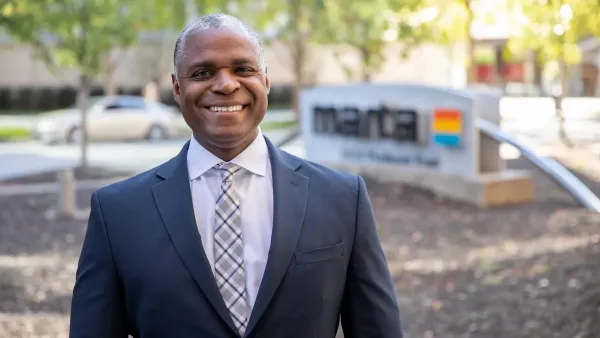Atlanta’s transit agency is slowing its plans to extend its bus and rail lines, prompting criticism from city officials.

The Metropolitan Atlanta Rapid Transit Authority (MARTA) is scaling back its expansion plans despite a voter-approved ‘More MARTA’ sales tax passed in 2016, writes Maria Saporta in the Saporta Report. The agency revealed that it plans to complete nine projects by 2028, with only one of them, the expansion of the Atlanta Streetcar, being a rail project. This is in sharp contrast to previous plans—in 2016, MARTA had as many as 70 projects in the pipeline. Saporta adds that the agency has downgraded some planned light rail lines to bus rapid transit (BRT), a move the agency says will save money and time.
While the agency has collected $394.8 million from the More MARTA tax, roughly 46 percent has been spent on bus operations and enhancements, despite an early projection that just 10 percent of revenue would go toward bus enhancements.
The article details frustration from city leaders with the slow pace of MARTA’s expansion. Councilmembers are calling on MARTA to return funds to the capital funding pool, and Mayor Andre Dickens replaced two MARTA board members in a sign of disapproval. “It’s important for me, the City Council and the public to say: ‘MARTA, we want to see projects delivered. We want to see Campbellton Road BRT completed soon. We want to see the Summerhill BRT, completed soon. We want to see Metropolitan and Cleveland Avenue projects completed, and we want to see these things done on time and on budget,” Dickens said.
FULL STORY: Less is less with More MARTA projects

Planetizen Federal Action Tracker
A weekly monitor of how Trump’s orders and actions are impacting planners and planning in America.

Chicago’s Ghost Rails
Just beneath the surface of the modern city lie the remnants of its expansive early 20th-century streetcar system.

Amtrak Cutting Jobs, Funding to High-Speed Rail
The agency plans to cut 10 percent of its workforce and has confirmed it will not fund new high-speed rail projects.

Ohio Forces Data Centers to Prepay for Power
Utilities are calling on states to hold data center operators responsible for new energy demands to prevent leaving consumers on the hook for their bills.

MARTA CEO Steps Down Amid Citizenship Concerns
MARTA’s board announced Thursday that its chief, who is from Canada, is resigning due to questions about his immigration status.

Silicon Valley ‘Bike Superhighway’ Awarded $14M State Grant
A Caltrans grant brings the 10-mile Central Bikeway project connecting Santa Clara and East San Jose closer to fruition.
Urban Design for Planners 1: Software Tools
This six-course series explores essential urban design concepts using open source software and equips planners with the tools they need to participate fully in the urban design process.
Planning for Universal Design
Learn the tools for implementing Universal Design in planning regulations.
Caltrans
City of Fort Worth
Mpact (founded as Rail~Volution)
City of Camden Redevelopment Agency
City of Astoria
City of Portland
City of Laramie





























